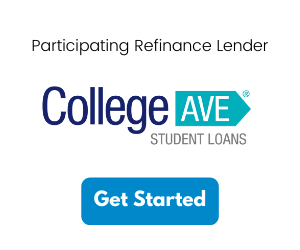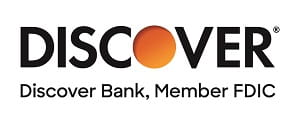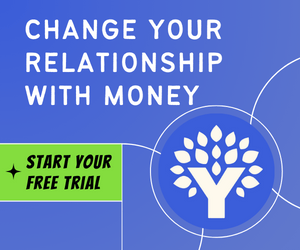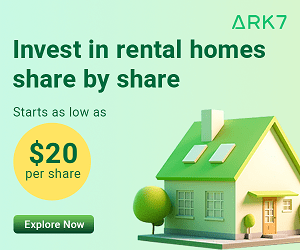Payday loans are short-term financial solutions with steep interest rates. To get the cash, borrowers provide a post-dated check that covers the loan amount and fees, which is then cashed on their next payday or when they have income. While advertised as quick fixes for cash shortages, these loans can lead to mounting debt due to their high costs. It's wise to consider payday loans only when absolutely necessary, and when the expense of not having funds is greater than the loan's hefty charges.
Payday Loans
A payday loan, often referred to as a cash advance, is a type of short-term credit, typically characterized by high interest rates and fees. This lending model is based on the borrower's employment status and payroll schedule, hence the term 'payday.' The borrower usually writes a check for the amount to be borrowed, plus a service fee, post-dated to their next payday. This check is then held by the lender who provides the borrower with the cash amount minus the fee. On the agreed payday, the lender cashes the check, effectively closing the loan.
Payday loans have gained notoriety for their high costs and potential to trap users in a cycle of debt. Despite this, they remain widely used, particularly in situations where individuals lack access to traditional credit options. These loans are commonly sought after for emergency expenses or when cash flow is temporarily disrupted.
However, due to their high interest rates, they can lead to significant financial distress if not managed properly. It is crucial to understand that payday loans are best used as a last-ditch solution when the immediate need for cash outweighs the cost of the loan.
How Payday Loans Differ from Other Types of Loans
In contrast to payday loans, personal loans, credit card cash advances, and installment loans offer different borrowing experiences, each with its own set of characteristics.
- Personal Loans: Often unsecured (meaning they do not require collateral), personal loans can be used for a variety of purposes. They generally offer lower interest rates than payday loans and credit card advances, especially for borrowers with good credit scores. Repayment terms are typically structured over months or years, with fixed monthly payments, making them more manageable than payday loans.
- Credit Card Cash Advances: This is a type of short-term loan provided by your credit card issuer. It's like withdrawing cash from the ATM with your debit card, but instead, you're borrowing cash against your credit limit. The interest rates on cash advances are usually higher than those on regular credit card purchases. They also start accruing interest as soon as the cash is withdrawn, with no grace period like regular purchases.
- Installment Loans: These loans are repaid over time with a set number of scheduled payments. The interest rates can be high, but often lower than payday loans. Loan amounts can also be larger, depending on the borrower's credit score. Similar to personal loans, installment loans offer longer repayment terms, making payments more manageable.
Payday loans differ from these loan types in several ways:
- They are short-term loans designed to be paid off by the borrower's next payday, hence the name.
- They carry higher interest rates than the other loan types mentioned.
- Payday loans do not require a credit check like personal and installment loans, making them more accessible but also more risky.
Here are the key differences you should be aware of:
- Interest Rates: Payday loans usually have the highest interest rates, followed by credit card cash advances, installment loans, and personal loans.
- Repayment Terms: Payday loans must be paid back by the next payday. Cash advances start accruing interest immediately. Installment and personal loans have longer terms, usually months or years.
- Loan Amounts: Loan amounts vary, with personal and installment loans usually offering higher amounts than payday loans or cash advances.
- Approval Requirements: Payday loans usually need proof of income, not a credit check. Personal and installment loans typically require a credit check and proof of income. Cash advances simply require having a credit card with a sufficient credit limit.
Where to Get Payday Loans
Payday loans can be obtained from both online lenders and traditional brick-and-mortar storefronts.
- Online Lenders: Today, many payday loans can be processed by lenders who are completely online. This option provides the convenience of applying for a loan from the privacy of your own home and at any time of day. Several online lenders offer quick approvals, often within minutes, and immediate transfer of funds into your bank account. However, it's important to do diligent research when considering an online payday lender. Check for reviews and ratings on reputable websites, ensure the lender licensed to operate in your state, and carefully review the loan terms and conditions before signing.
- Physical Locations: Payday loan storefronts are another place to obtain these loans. These businesses operate in many towns and cities across the United States. An advantage of using a brick-and-mortar lender is the ability to speak with a representative in person, which can provide a more transparent understanding of the loan terms. However, hours of operation can be more restrictive compared to online lenders, and the process might be slower.
The Importance of Research and Comparison
Whether you choose an online lender or a physical location, it is crucial to compare different lenders before making a decision. Not all payday loans are created equal, and the terms and conditions can vary significantly. Look for lenders that offer lower interest rates and fees, flexible repayment terms, and clear, easy-to-understand loan agreements. Remember, a reputable lender will provide all of this information upfront.
Also, be sure to check whether the lender is licensed to operate in your state. Unlicensed lenders might be operating illegally, which could lead to significant problems down the line. Most states have resources available for you to verify a lender's license.
While payday loans can provide a quick resolution to a financial emergency, they should be approached with caution due to their high interest rates and potential for creating a cycle of debt. Doing thorough research and comparison is an essential step when considering a payday loan.
Understanding the Terms of Payday Loans
It’s important that you have a thorough understanding of the terms associated with payday loans before deciding to take one out. Here are some of the most common terms you'll encounter and what they mean:
- Annual Percentage Rate (APR): This is the yearly interest rate and fees you'll pay for your loan, expressed as a percentage. Payday loans often have extremely high APRs, sometimes in the triple digits. The APR is a good way to compare the cost of different loans. A higher APR means you'll pay more over the life of the loan.
- Rollover: If you're unable to repay your payday loan by the due date, the lender may offer a "rollover." This means the loan is extended for another period, and a new fee is added. While a rollover can prevent default in the short term, it can lead to a cycle of debt as fees and interest accumulate.
- Due Date: This is the date by which you're expected to repay the loan in full. Payday loans are typically due on your next payday. If you don't repay the loan by this date, you may be charged additional fees, or the loan may be rolled over and you may be also charged a fee for the loan rollover
These terms can significantly impact the total cost of your loan and your ability to repay it. For example, a high APR will increase the amount you owe, making the loan harder to pay off. Rollovers can lead to a cycle of debt as new fees are added to the original loan amount, increasing the total you owe. And if you miss the due date, you may be hit with late fees, adding to your debt load.
So, before seeking a payday loan, it's important to understand these terms and consider how they might impact your ability to repay the loan. If you think you might have trouble repaying the loan by the due date or if the APR is very high, it might be better to explore other types of loans or sources of emergency funds.
Words of Warning When Considering Payday Loans
Payday loans may seem like a convenient solution to your immediate financial needs, but it's essential to approach them with caution. The allure of quick cash can blind borrowers to the high costs and potential risks associated with these types of loans.
Payday loans typically come with extremely high interest rates and fees, often leading to an Annual Percentage Rate (APR) in the triple digits. This exorbitant cost can quickly inflate a small loan into a sizable debt, making it increasingly difficult to repay.
Moreover, the short repayment terms of payday loans can create a hazardous cycle of debt. If a borrower is unable to repay the loan by their due date they may resort to a "rollover," extending the repayment period and adding new fees. This cycle of continually rolling over a payday loan can trap borrowers in a perpetual state of debt, making it challenging to achieve financial stability.
Despite the potential risks, the need for emergency cash can be pressing. Therefore, it's worth exploring alternatives to payday loans. Credit unions often offer small, short-term loans at much more affordable interest rates. Credit card cash advances, while still high in interest, are usually more manageable than payday loans. Additionally, you might consider tapping into emergency savings or asking family or friends for a small loan. Lastly, it's always a good idea to explore options for additional income, such as part-time or freelance work.
Before deciding on a payday loan, it's crucial to fully understand the terms and implications of the loan. Consider all the costs, explore your alternatives, and remember: a payday loan should always be the last resort.









